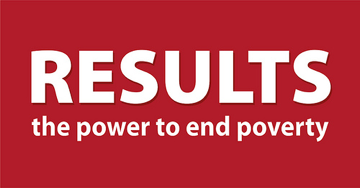Accelerating the End of Ultra-Poverty
Our inaugural index and report provide a data-driven analysis of what comprises ultra-poverty, where it is concentrated, and a multi-sector roadmap for ending it by 2030.

Regional Director for Central America, Swiss Cooperation in Central America
For me a person who is ultra-poor has too little food to live, but too much to die. The person does not have social networks, which could help her to get out of this situation of need and little emotional support to find the energy to fight to get out of the situation of despair and mere survival. If I should put a picture to the concept, so an old and emaciated woman comes to my mind, which I saw once sitting on the side of a dusty road in Port au Prince, exhausted, with a blank gaze looking somewhere in the nothing. Just surviving without hopes for the future.
KCMG, Founder and Chairperson, BRAC
The face of ultra-poverty is a woman, with children. She has domestic work or very low paid agricultural work and doesn’t get paid properly, receiving only food for her work. She shares her food with her children, so she’s half fed, and they are half fed. She can never build up a surplus or send her children to school, so at age seven or eight she farms her children out to work as domestics in other homes. She also loses most of her kinship relationships because her family wants to avoid her. She’s in a trap and doesn’t know what to do.
Physician and Anthropologist, Co-Founder of Partners in Health
Ultra-poverty occurs most often when people already living in poverty face catastrophic illness or catastrophes caused by so-called natural disasters or wars or man-made, disastrous policies. High-interest microcredit loans, user fees for clinical care, school fees -- these are also mechanisms that push poor families into destitution, another word for ultra poverty. To break the cycle of poverty and disease, they need medical services, productive assets and livelihood support.
Actress
When I traveled to Haiti in the fall of 2016, I was shocked by the extent and depth of the poverty I saw. I was encouraged by Fonkoze’s approach, by the one-on-one accompaniment and training given to ultra-poor women, and by the success they are having ‘graduating’ these brave women and their families out of ultra-poverty.
Canadian Ambassador to Haiti
Ultra-poor – Not enough food to have one meal a day regularly. Unable to care for children in the very basics - food and education. No property or any collateral to "kickstart" themselves to open a small business. A category of people that sustainable micro-financing is not available to. They have not reached the level where financial institutions will lend to them. The most vulnerable of all humans.
Co-Founder of Kiva
Ultra-poverty is the type of scarcity that makes basic human survival -- let alone reaching one's potential -- immensely challenging. Compounding scarcities in food security, health access, education and more create a vicious cycle of hopelessness. Fortunately, there is clear evidence that we as a society can address the issue (e.g. graduation programs) if we simply have the moral imagination & will to do so. I believe our generation's most exciting opportunity is to eliminate such severe scarcity and inequality based on the lottery of birth. All progress depends on a larger sense of us.
Irish Businessman and Founder of Digicel
Ultra-poverty means being constantly hungry and frightened for your future and that of your family.
a Justice of the Supreme Court of the United Kingdom
In the United Kingdom, we identify specific income subsistence levels and regard poverty as anything below them. But ultra-poverty is in a different league of awfulness. We tend to see it when, sitting in our favourite chairs, we want to turn off the television news because we don't wish the pain of it to spoil our evening: the pain of the dying child with the visible ribcage; of the desperate mother, pleading with her eyes into the camera; of the father, resolute in unconquerable adversity; of the fact that the three of them represent millions of others in a like situation; and of the pity of it all, which so shames us, sitting there.

Important perspectives from leaders, experts, and practitioners at the forefront of the movement to end ultra-poverty.


